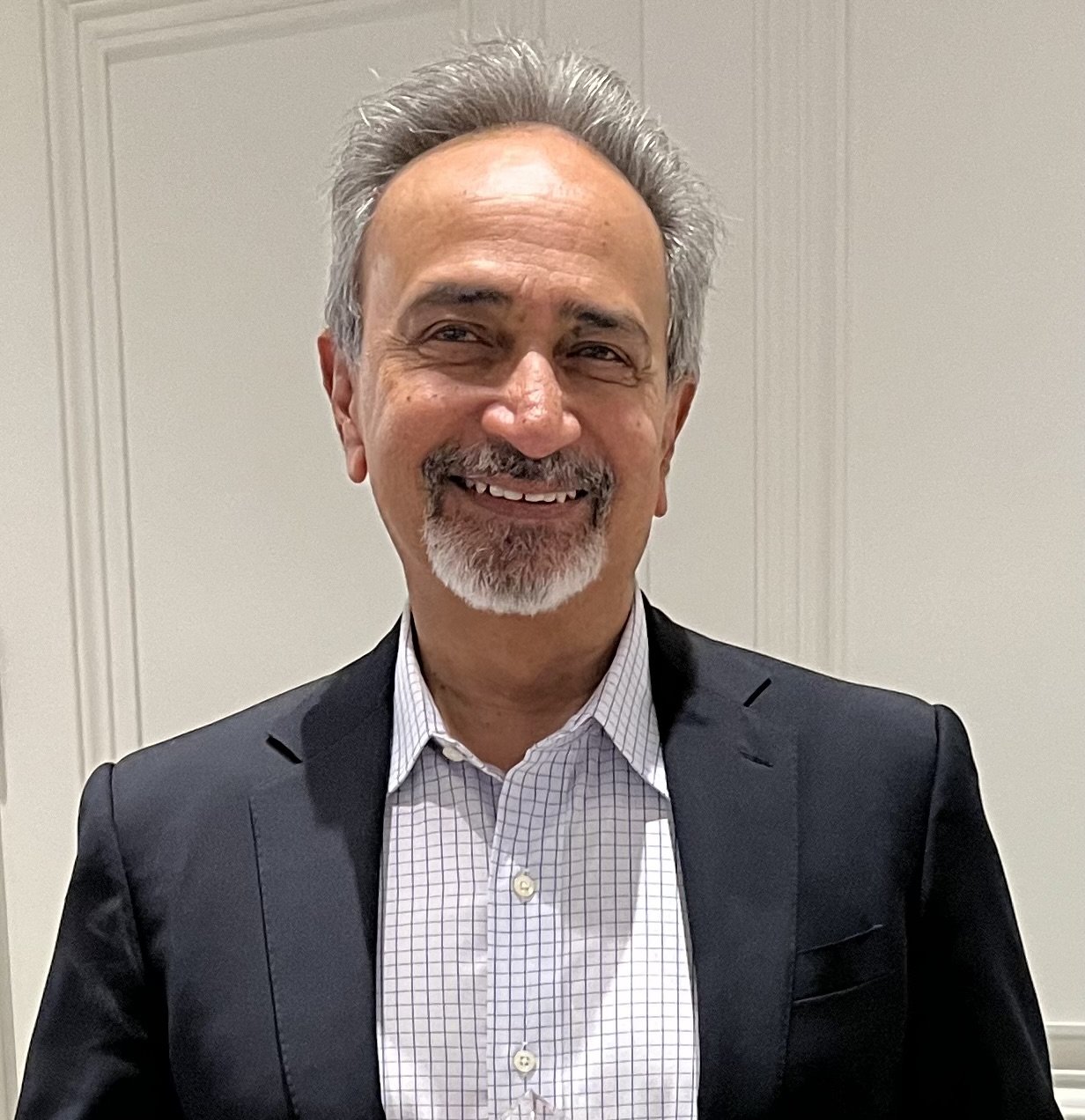Electronic Summer 2023 | Issue 55
Member spotlight: Dr. Atul Mahabaleshwarkar MD
In this edition of Member Spotlight, ECP Committee member of IPS, Dr. Tapan Parikh, Assistant Professor at Northwestern University, interviews senior and highly accomplished physician, Dr. Atul Mahableshwarkar.
Dr. Mahableshwarkar completed his residency and fellowship from University of Health Sciences/The Chicago Medical School from 1985-1990. Prior to that, he completed his medical education in India, where he grew up. Dr. Mahableshwarkar has worked for most of his career in new medication development for psychiatric conditions.
Question 1: Dr. Parikh: Dr. Mahabaleshwarkar, we have known your work in "drug development" and "clinical trials". Can you please tell us about your unique career in this area?
Answer 1: Dr. Mahabaleshwarkar: I can think about two career paths for someone interested in the career track I have had. One is to be a clinician in an academic setting where there is patient care, teaching, administrative work, and I started my career with this track. Eventually, I transitioned to the drug development role.
Q2: Dr. Parikh: Can you please share more insight into your journey of both?
A2: Dr. Mahabaleshwarkar: Sure! I was the Chief of Mental Health Services at North Chicago VA, where we had 800 patient beds and 125,000 outpatient visits per year. It was a longer-term care hospital within the VA system so we would get referrals from other VA hospitals when longer-term care was needed. I was Associate Professor with Chicago Medical School as well as the Vice Chair. I ran the ECT service for eight years with teaching as part of the work, and I enjoyed all of these very much. However, I decided to take a different route beyond this point and worked in large and well-known pharmaceutical companies and had a variety of contributions, most recently the development of vortioxetine and its subsequent approval. In this second type of career, there are several opportunities to still stay focused on patient-care, but not at a direct level. The development of a new drug is a fascinating but long and complicated process where something newer could be brought to patients in need.
Q3: Dr. Parikh: What else should the younger generation know about the new drug development process?
A3: Dr. Mahabaleshwarkar: I will give you an example. As I mentioned before, making new treatments available to those in need is one aspect. However, there have been times when I recommended stopping studies for a new molecule, when I felt there were no clinical benefits, although there were no safety concerns. This is an example of an opportunity where 'not pursuing something that may not lead to improvement’ is a very important decision to make. There are a lot of stakeholders in this process. Similar to “it takes a village to raise a child”, it takes a lot of people to develop a new drug. One additional point to remember is that most drugs fail in the development process for a variety of reasons.
Q4: Dr. Parikh: What are some of the challenges in the drug development process?
A4: Dr. Mahabaleshwarkar: Methodological advancement is a process that will always be ongoing, and improving the way studies are conducted is very important. I dedicate my efforts towards this as a member of the Executive Committee of The International Society for CNS Clinical Trials and Methodology (ISCTM) and Leadership Committee of the CNS Summit, two societies that focus on methodological improvement.
Q5: Dr. Parikh: What does engagement with APA and IPS mean to you?
A5: Dr. Mahabaleshwarkar: I have been a proud member of APA and IPS for the last 30 years! I joined as a resident in 1987 and I have been on the district branch leaderships and IMG Committee, and a member of the member-benefit committee at the national level. I have enjoyed and appreciated being part of our professional community!
Q6: Dr. Parikh: It is indeed great to hear that throughout your career, you have been involved with APA and IPS! What could IPS do to increase awareness in the area of your expertise?
A6: Mahabaleshwarkar: I think traditionally there has been some segregation between the drug development industry and those who practice medicine. However, we are all connected by the mission of advancing science and improving the lives of those who struggle with mental health conditions. If IPS can continue such teaching efforts to educate the younger generation, that would be valuable.
Q7: Dr. Parikh: Let me ask you this, would you consider meeting the Early Career Psychiatrists (ECPs), Residents and Fellows to talk about career options in "drug development and clinical trials" and maybe to share your experiences?
A7: Mahabaleshwarkar: Of course. I will be happy to be a speaker or a panelist.
Q8: Dr. Parikh: Thank you for that! I know the ECP Committee will be thrilled. What does life look like for you currently?
A8: Dr. Mahabaleshwarkar: I currently work as a consultant in the area of drug development for various consulting companies. As an independent consultant, I look at clinical trial data, work with regulators, and keep the process moving forward.
Q9: Dr. Parikh: What are some of your interests outside medicine?
A9: Dr. Mahabaleshwarkar: Many! I love hiking, classical Hindustani music, trekking, and most importantly, enjoying time with my twins and my family!



